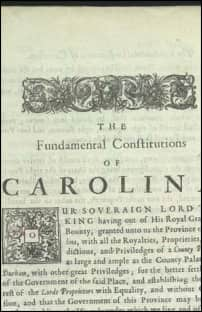Early lawyering in colonial America
By Kristopher A. Nelson
in
September 2011
300 words / 2 min.
Tweet
Share
In the seventeenth century, according to Kermit Hall and Peter Karsten, “there were few lawyers and their status was problematic.”

Please note that this post is from 2011. Evaluate with care and in light of later events.
In The Magic Mirror: Law in American History, Kermit Hall and Pater Karsten write:
The [Plymouth] colony’s first trained lawyer, Thomas Lechford, did little to instill enthusiasm. He was disbarred for trying to influence a jury. Antilawyer sentiment was pervasive elsewhere as well, and the “ancient English prejudice against lawyers secured new strength in America.” The framers of the Fundamental Constitutions of the Carolinas in 1669 declared it a “base and vile thing to plead for money or reward.” Connecticut and Virginia during a portion of the seventeenth century prohibited lawyers from practicing. Early lawyers were often laymen helping friends or women serving the legal interests of absent husbands. (Hall 21-22)
Still, despite the opposition to lawyers–perhaps arising from the complex and seemingly arbitrary rules of the early common-law system–the complexity of colonial legal life (each part of the colonies tended to have its own legal rules which more-or-less approximated some part of the very complex English system), and the importance of smoothing out trade, meant that lawyers became increasingly valued. Although there were no law schools, a “rough apprenticeship” process, along with self-teaching, emerged to prepare attorneys.
But unlike in England, according to Hall and Karsten, there was never sufficient legal business to justify splitting the profession into barristers and solicitors. Instead, “American lawyers survived as generalists” (Hall 22).
It was not until after the Revolution that some moves to formalize legal training emerged, but even though Harvard, Yale and Columbia started legal training in the mid-nineteenth century, it wasn’t until the late nineteenth and early twentieth century that the law school system as we know it today developed.
